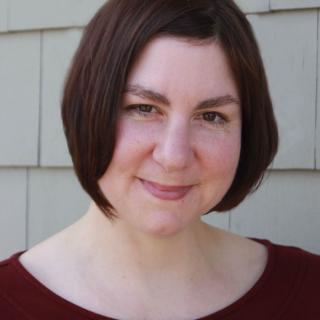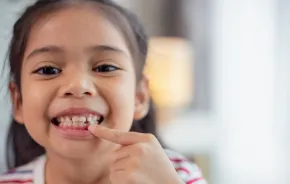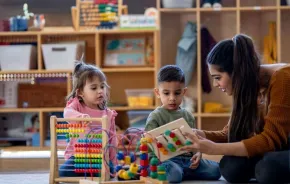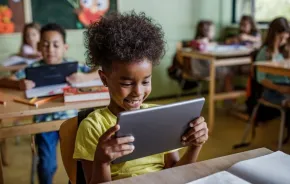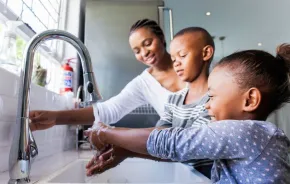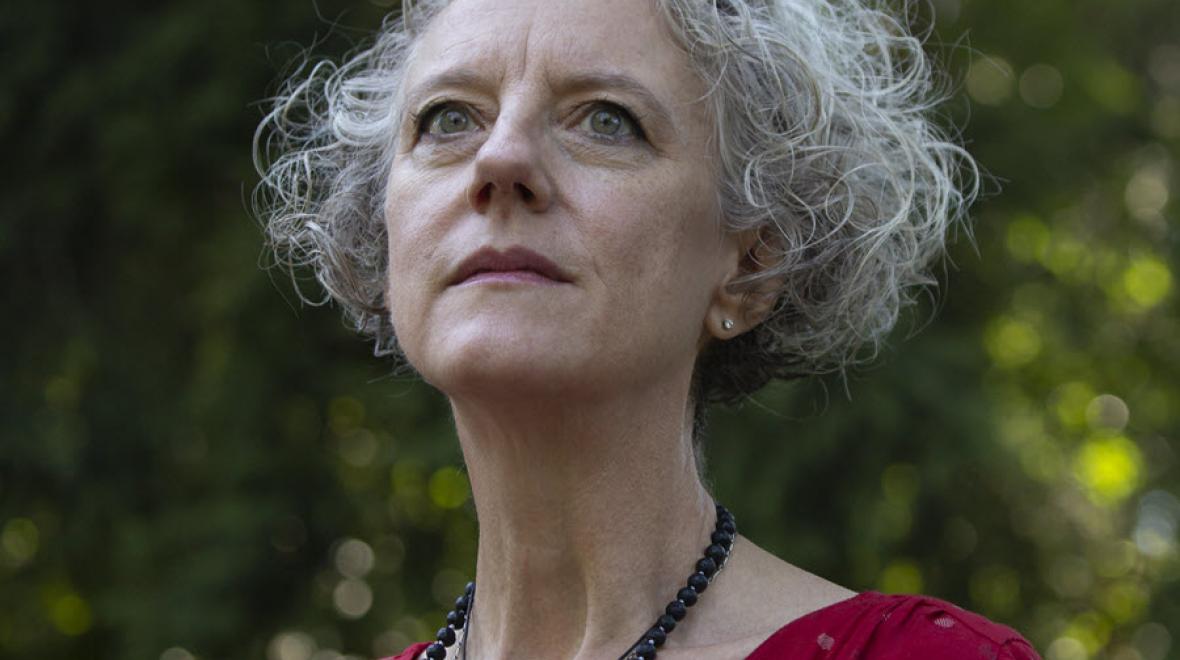
Photo:
Paula Becker, photographed by David Ryder

Paula Becker is a local historian (and former ParentMap contributor) who has written books on subjects from beloved author Betty MacDonald of “Mrs. Piggle-Wiggle” fame to the Seattle World’s Fair. With next week’s publication of “A House on Stilts: Mothering in the Age of Opioid Addiction,” the Seattle writer turns to her own deeply personal history.
Starting around age 15, her oldest son, Hunter, began a years-long struggle with addiction (first with diverted fentanyl patches, then heroin), rehab and relapse, and periods of homelessness. When Hunter was 20, Becker started writing to try to make sense of the tumult that resulted from his addiction. Hunter died at 25 in 2017 after being hit by a bus he’d been riding in Oregon. Becker is a mother of three whose younger children are now ages 21 and 24. Below are highlights of our interview.
I know your husband and Hunter’s siblings agreed with your decision to publish the book, in the hope of helping others. What did that decision look like for you?
When I found the book “Beautiful Boy: A Father’s Journey Through His Son’s Addiction” [when Hunter was in his first rehab, in 2010], I remember thinking I couldn’t understand how a parent could make that story public. But over time, I came to realize how lonely it is for parents [with children struggling with addiction]. When Hunter was in high school, I didn’t know anyone who was going through something like we were. We weren’t having the national conversation about addiction that we’re having now.
Once I started writing about our story, I told Hunter; his feelings about the project went back and forth. I set this manuscript aside when I started writing “Looking for Betty MacDonald,” a period when Hunter was in recovery. I’d decided that if he were to grow up and say, ‘You’re right, this will help a lot of parents,’ then I would publish. I’d also decided that if Hunter died, I would publish.
I wanted to write this book to be a hand to hold for others. I did a lot of thinking about whose story this was: It’s my story, as a mother. Hunter would have written a very different story. I would have loved [for him to have done] that.
You write about the illusion that we, as parents, sometimes operate under: that we can control so much in our kids’ lives. What finally made you realize it was just an illusion?
[Before Hunter’s teen years], I was sure that doing my best in everything as a parent was like putting money in a bank account, that it would mean good outcomes for my kids. Parenting Hunter as his addiction grew, I realized that wasn’t a guarantee. By the time he was a young adult, I understood intellectually that I couldn’t control or fix his situation and make it better for him, even though as parents we feel like that’s our job. His death showed me that we control nothing. It’s terrifying. It’s also freeing. It doesn’t mean you don’t have responsibility for your decisions as a parent. But those decisions don’t guarantee outcomes.
How did your experience with Hunter affect the way you parented your two younger kids?
I’d always been a hands-on parent, but I was a more cautious parent to them. It made me hypervigilant about any situations that I thought might go south. I paid the keenest attention I could to how they were navigating. I didn’t take things going well for granted. I recognized they were doing well because they were doing well. I gave credit to the kids for their behavior, every time.
How did your vision of yourself as a mother change as you grappled with Hunter’s addiction?
Not a lot. I had tasked myself always with: “Am I doing my best.” My goal was to show up with a softer and softer heart, with more compassion in the moment. And that’s a good lesson for parents as their children become adults anyway — to be compassionate with our kids’ choices. I just learned that in a very extreme way. Hunter would tell me, ‘This isn’t your fault, Mom. You’ve always been a really good mom.” I feel so lucky he would say that. And that I was able to stay in contact with his essential goodness.
What do you say to parents struggling with their own kids’ addiction or who are worried about their kids falling into addiction?
It takes practice to see our whole child and not just see the things that are easier or more socially acceptable. It’s not easy. Be honest about what you’re seeing. Pay attention to early warning signs and intervene early. Instead of thinking, “I know my kid, and this isn’t my kid — my kid will revert to the kid I know,” muster help wherever you can get it. Thankfully, there are more resources today than when I was going through it with Hunter [including groups such as Shatterproof, where Becker now is an ambassador].
We aren’t alone as parents in these struggles, but there’s still stigma and blame around addiction among people who think that they don’t know someone with addiction. The thing is, they do know someone with addiction, but they don’t know that they know someone.
You told Hunter he couldn’t live at home, with his younger siblings, and continue to use. So, he sometimes stayed in the family’s backyard playhouse and sometimes on the street. How has that experience informed your view of homelessness in Seattle?
Hugely. It’s making the link between the kid on your lap at the library story hour and the kid on the street plugging in his phone at that same library. I know that person on the street is a human being and has a story and has a mother.
Sometimes I hand them money, sometimes not. I usually say, ‘I’m headed to the store, what can I get you?’ A young man in front of Bartell’s recently told me what he really wanted was orange juice. When I came out with a big bottle, he said: ‘Thank you, that’s my favorite thing in the whole world.’ That made me happy all day. To me, that’s not enabling; that’s being human.
I hope someone did that for Hunter. I hope all sorts of people were kind to him. And as much as you would do anything to help your kid, there are times when you can’t be the one to help. But someone else might. As a city, we can, and should, step in to help. We need more resources to help parents, from how do I deal with truancy — calling the school often isn’t enough because they don’t have the resources to help — to where do I turn if my kid is starting to use drugs? How do I find family, individual, peer counseling? How do I find a “good” rehab program? What if I can’t afford it? As a parent, you’re standing there Googling while you’re in the midst of crisis. The more the city and county can help put together a vetted clearinghouse parents can access, the better we’ll all be.
Any last words to parents reading this?
It’s hard sometimes to sit with the frustration that can come with raising little kids. But try to train yourself to appreciate every moment. Because you get to keep those. And I have.
|
Join Becker at Seattle’s Central Library on September 21 for a book talk and panel discussion moderated by KUOW host Ross Reynolds with representatives from YouthCare and Accelerator YMCA, two local programs that provide housing and support to homeless youths — including Hunter. |




